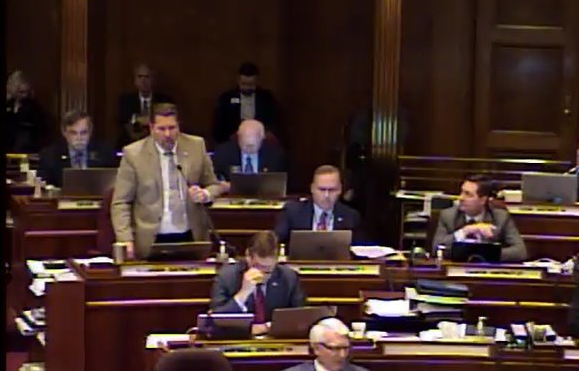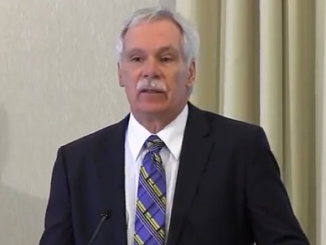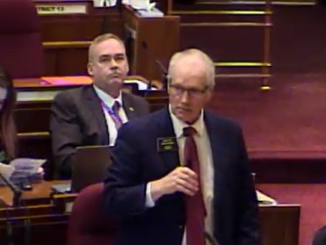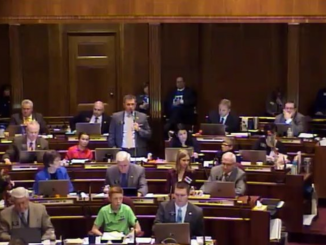
One aspect of the legislative process in North Dakota that really frustrates me is when committees make bills worse, not better. The idea of sending bills through the committee process is to provide an opportunity to vet them. I think it’s a reasonable expectation. After all, committees can take the time to hear or read testimony, review fiscal notes, conduct research, etc. Collectively, they can basically do things that there’s no time for in a floor debate.
Unfortunately, it’s not always good work that some committees do. To be honest, sometimes they just screw things up. Take for example a bill Senator Oley Larsen (R – District 3) proposed during the 2017 Legislative Session. It was Senate Bill 2139. The concept of the legislation was actually quite simple. It proposed to decriminalize Concealed Weapons Permit holders for failure to have their permit available at the time of being checked by a law enforcement officer. As was stated in the bill:
“If the person produces satisfactory evidence of a valid license to carry a concealed weapon in effect at the time of the alleged violation of this section to the office of the clerk of court under which the matter will be heard, that person may not be found in violation of this section.”
Simple enough. A common sense piece of legislation if there ever was one. And even the Senate agreed. They passed it by a vote of 44-2. But when it hit the House, it was the beginning of the end. The House Energy and Natural Resources Committee slipped in an amendment that literally had nothing to do with Senator Larsen’s bill. The amendment added this:
“A state elected official while the official is at a publicly owned or operated building, if the official possesses a valid North Dakota concealed weapons license and maintains the same level of firearms proficiency as is required by the peace officer standards and training board for law enforcement officers. Only a law enforcement agency may issue a proficiency certificate under this subdivision.”
The issue of carrying a concealed weapon in a publicly owned and operated building had been proposed in separate legislation during the same 2017 session and had failed in the Senate. Why the House Energy and Natural Resources Committee thought attempting to carve out an exception for state elected officials, through amendment on Larsen’s bill, still baffles me to this day.
As a result, when the bill came back to the Senate — after going through conference committee — it was doomed. Senator Larsen did his best to save it during floor debate. He even inquired whether they could split the bill and vote on his part alone, but apparently such a thing isn’t permitted at that point in the legislative process. So, when the votes were tallied, the bill that had originally passed the Senate by a vote of 44-2 was defeated 3-43. It was bad.
Unfortunately, this isn’t the only example of a bill getting messed up. This same House Energy and Natural Resources Committee tinkered with Rep. Rick Becker’s (R – District 7) Constitutional Carry bill during the 2017 Legislative Session. And while that bill passed, it was later discovered that they messed with language in relation to loaded firearms in vehicles. In short, the requirement that one must possess “a valid concealed weapons license” to carry loaded in a vehicle still appeared to be maintained in the law.
The committee’s snafu resulted in an Attorney General’s opinion in which he creatively expressed his view that carrying loaded in a vehicle could still be considered okay when considering the intent of the overall legislation. In order to align the verbiage with the intent, House Bill 1042 was sponsored by Rep. Todd Porter (R – District 34) this session to clean up the language. It passed the House last month with a 91-0 vote.
What’s interesting to note about the Constitutional Carry bill is that Rep. Becker actually had the language correct before the committee tinkered with it.
These are just two examples. There are others. But why shouldn’t bill sponsor’s have final say of whether amendments are accepted? I think they should. Whether it’s minor amendments or hog housing an entire bill, these changes can be problematic. If members of committees don’t like the fact that their amendments get rejected by primary sponsors, then they can make their case against the bill during floor debate. But they shouldn’t be able to hijack a bill. To me, that’s just wrong.
If Senator Oley Larsen had the option to reject changes in 2017, he wouldn’t have to propose the bill again this Legislative Session— which he’s done in the form of SB 2140.
Sources:
- https://www.legis.nd.gov/assembly/65-2017/bill-index/bi2139.html
- https://www.legis.nd.gov/assembly/65-2017/bill-actions/ba1190.html
- https://theminutemanblog.com/2017/08/01/constitutional-carry-becker-had-it-right-committee-screwed-it-up/
- https://theminutemanblog.com/2017/12/15/attorney-general-says-loaded-gun-in-vehicle-okay-under-constitutional-carry/
- https://www.legis.nd.gov/assembly/66-2019/bill-index/bi1042.html





